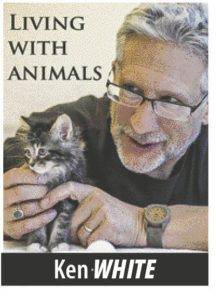At times it seems that we are a species possessed of apparently tiny memory as well as very little interest in the past. Here’s a case in point. Say the word “Tesla”, especially here in the Bay Area, and you’ll soon find yourself in a conversation about innovation and billionaires. But ask about the genesis of that brand name, and you’ll likely get blank stares. Yes, today there is a man named Elon Musk who has created a car company named Tesla. But a century ago there was a man named Nikola Tesla who invented neon and fluorescent lighting and many of the components which today make possible such things as radio, television, automobile ignition systems, and electric motors. And who loved pigeons. So much, in fact, that when a favorite pigeon died he wrote, “As long as I had her, there was a purpose in my life.” This was back in 1922, and Tesla said that as she died a light came from her eyes more intense than he had ever produced by the most powerful lamps in his laboratory.
Among this quirky, brilliant man’s quirks, he eschewed private homes and instead lived in hotels where he reliably left window opens to allow the free comings and goings of his beloved, much admired pigeons. Over the years, he was asked to leave many hotels because of his feathered guests.
Actually, he loved animals of all sorts, crediting a moment of static electricity enjoyed with his childhood pet cat as the muse for his lifelong experimentation: “In the dusk of the evening as I stroked Macack’s back, I saw a miracle which made me speechless with amazement. Macack’s back was a sheet of light, and my hand produced a shower of crackling sparks loud enough to hear all over the house.” This led to his “…thinking abstractly. Is Nature a gigantic cat? If so, who strokes its back? I cannot exaggerate the effect of this marvelous night on my childish imagination. Day after day I have asked myself, what is electricity?” As much an animal lover (and vegetarian) as pioneering scientist, those passions clearly combined in some unique way in this remarkable human being.

